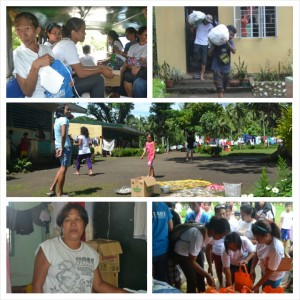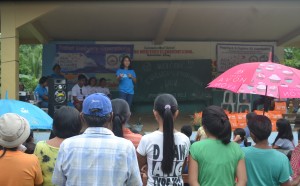
Guinobatan, Albay – Yolanda Opiana turned 56 on October 7 in a place not her own but where she is very familiar with – in an evacuation center.
“Dito na ako inabutan ng birthday ko (I celebrated my birthday here),” Yolanda recalls without a trace of resentment. Yolanda, who is from the outlying municipality of Masarawag, is one of thousands who have temporarily relocated in public schools. This was after the provincial government of Albay declared a state of calamity in areas within the 6-KM Radius Permanent Danger Zone (PDZ) and the 6-8KM Extended Danger Zone (EDZ) when Mayon volcano showed signs of impending eruption early September this year.
Living within the six-kilometer permanent danger zone around Mayon volcano, Yolanda and her four children are frequent occupants of evacuation centers situated within Maipon village in the municipality of Guinobatan. Whenever there are typhoons or volcanic eruption alerts, Yolanda and her children are among the thousands of families who seek temporary shelter in evacuation centers in the disaster-prone province.
For Yolanda, evacuation centers are not just temporary shelters when disasters hit their homes. It is also where she and her younger sister, Gemma, 44, found a vocation – that of being a volunteer for the disaster preparedness committee in their barangay. It was during typhoon Reming in 2006 when the two sisters found themselves involved in relief operation efforts of the local non-governmental group TABI or Tarabang para sa Bikol, Inc. True to tarabang’s meaning which is “mutual aid,” TABI has addressed natural and man-made disasters by involving the greatest number of people through community-based disaster management and health programs for more than 20 years. The organization has a very lean staff but it has a vast number of volunteers most of whom are evacuees like Yolanda and Gemma.
Preparedness matters
“The heart of an effective evacuation is the community’s preparedness,” said Romeo Morales, barangay chief of Tumpa in the neighboring town of Camalig, Albay. Morales has been a volunteer of TABI’s Disaster Preparedness Committee (DPC) since the year 2000 when he was still an ordinary barrio folk. His skills in disaster risk reduction management earned him the trust of the community, leading to his election as village chief in 2007. Now in his last term in office, he leads his community in an evacuation center in Camalig town.
“Itinuro sa amin sa training ang mga warning signs bago dumating ang mga kalamidad (We were taught the warning signs before calamities strike),” Morales said. “Hindi na kami naghihintay ng announcement sa NDRRMC (National Disaster Risk Reduction Management Center), nagpapalikas na agad kami (We do not wait for announcements from the NDRRMC, we ask the people to evacuate immediately),” he added. He said local officials can identify looming danger and their first order of the day is to keep the community safe.
Gemma said their evacuations have become manageable because they have undergone trainings on disaster risk reduction management in their locality. “Tinuturuan kami kung paano lilikas. Pag nandito na kami sa evacuation center, itinuturo sa amin kung kanino kami dapat lumapit. Kapag uuwi na kami, tinuturuan din kami kung paano kami magsisimula ulit (We were trained how to evacuate properly, who to approach when we need anything while in the evacuation centers and how to start anew after a disaster),” said Gemma.
Health needs
Since health is a primary concern in evacuation centers, DPC volunteers are taught how to make their own ointment for skin diseases, cough syrup made from the herbal plant lagundi, and home-made salabat (ginger ale) which is used as a natural remedy for many ailments.

Recognizing the need to promote hygiene and sanitation, the Asia Pacific Alliance for Disaster Management (A-PAD) has included hygiene kits in the relief packs which volunteers like Yolanda helped give away on the second week of October. A-PAD is a trans-national group which supports the relief operations of TABI for the Mayon evacuees.
“First time may nagbigay ng ganito sa amin dito sa evacuation center (It is our first time to receive something like this),” the thankful evacuees were heard as saying.
Yolanda considers helping other people who experienced the same trauma as a result of disasters like she did as a lifetime achievement. She could not hold back her tears as she recounts how she moved forward from being a victim to a survivor.
“Mahirap naman kung kami lagi ang tutulungan (It’s hard to always rely on aid from other people),” she said in between sobs. “Kahit konting lakas lang ‘yan, may naitulong pa rin ako (It makes me feel good to be of help).”

Leave a Reply